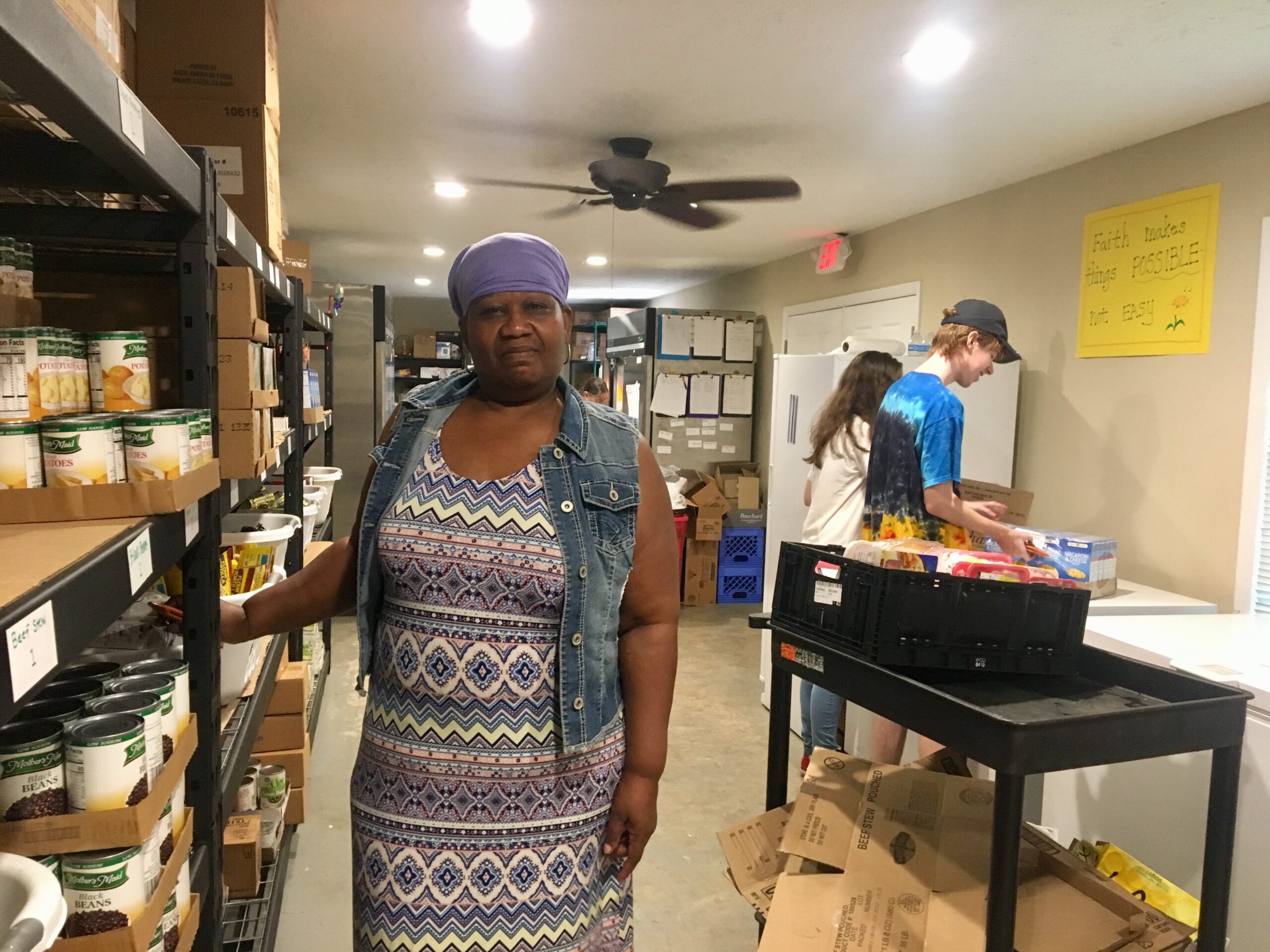Jennifer Muschett worked her whole life. She moved from Jamaica to New York when she was 19 and started taking factory jobs, working in home health care. In 2007, she found work doing housekeeping for a nursing home. It had benefits and a pension. She thought she was going to retire from that job.
“I was having so much issues at work where days I was able to go into work and, you know, my body just start just aching sometimes I couldn’t even get up,” Muschett said.
She was diagnosed with degenerative arthritis in her spine and, suddenly, the working life she knew was over.
“The job that I used to do nobody wants you to come to work and can’t function you know,” said Muschett.
She’s been on disability ever since. Muschett is 62 now, and improving economy or not, the options she has to change her life feel limited.
“Get a rich husband?” she offers, but takes it back quickly. “No, not a husband honey. I was married once and that was it.”
She does her best to keep the bills paid, between social security checks and some help from family, but she worries about her son’s future. He’s 16.
“He wants to go to college. I don’t have a college fund,” said Muschett.
Saving for the future is just not something that’s happening. She doesn’t like not working, but she worries about losing what stability she does have.
“Because if I go out there and start working, and I get sick in two weeks, I’m not going to get anything. I’ll probably end up losing my social security. Jeopardizing what I’m getting to go get an extra 200 dollars,” Muschett said, throwing up her hands up.
Carol Glazer, president of the National Organization on Disability, made a similar point.
“In some aspects, it can be an irrational decision to accept a job offer when you’re having to walk away from those benefits,” Glazer said.
There are state and federal programs that try to help people connect with employers who will take on workers with disabilities. But depending on what kind of federal help you’ve been getting, keeping on top of all the requirements can be a challenge.
Curtis Rodgers works in the Benefits Navigator program in Atlanta’s Shepherd Center. It’s his job to help people figure out the balance of working and getting benefits. He believes the system can work, if folks have the right information, which he acknowledges isn’t always the case.
“Their primary practice at social security is not disability. So social security doesn’t really send out this information or give it to people in a way that’s helpful,” said Rodgers. “For some people, having to act on that information is like having a second job, because it’s a lot of stuff that you have to keep up with.”
Curtis says if someone messes up their reporting to social security, it can take anywhere from a couple months to the better part of a year to get back on track. The potential for getting tangled up is real.
On top of those basic challenges, in Muschett’s case you can add tragedy. The June day we met happens to be the third anniversary of her son’s death. He was 19 when he was shot and killed walking down the street.
She says it’s always on her mind. The grief has changed her.
“My house is not kept the way that I like my house kept. And I get sometimes I eat just I don’t sleep most of the time,” she said.
Piling on mental health issues can make searching for a job even tougher.
Glazer says four out of five working-aged Americans with disabilities don’t have jobs. And while back to work programs are helping, the path is smoother for some than others.
“In a white collar job, it’s a lot easier for someone who is living close to the margin and has always worked in blue collar jobs. There’s no question about it,” said Glazer.
Physical work is all Muschett’s really ever done, and she misses the structure. To get out of the house, she volunteers at her local food pantry in Covington.
“I came to get food and I never left,” she said, cutting into some boxes.
It’s low stress. She likes the people there. It’s just not getting her closer to paying for college.
This story is part of the WABE series “Still Struggling.”
CORRECTION: This story has been updated to show the correct spelling of Jennifer Muschett’s last name.










